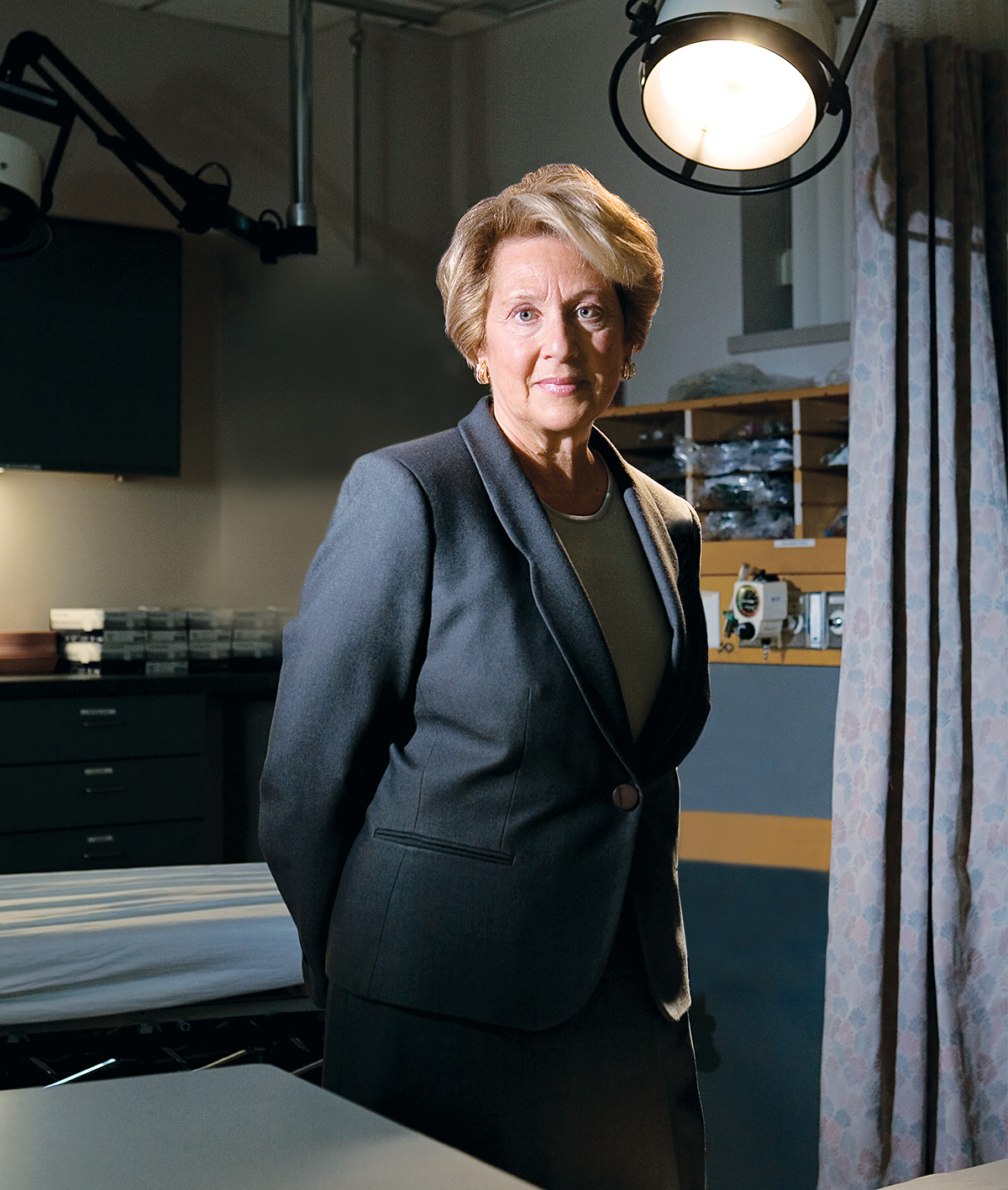Person of Interest: Ellen Zane

Photograph by Dana Smith
Ellen Zane is many things—a healthcare impresario, the current CEO of Tufts Medical Center, a woman of chic black power suits — but mostly she’s prescient. Scary prescient. Especially when it comes to anticipating changes in Massachusetts healthcare. And thanks to her uncanny foresight, Tufts is suddenly a medical heavyweight.
Actually, Zane’s clairvoyance began with another company, Partners HealthCare, back in the 1990s. Mass General and Brigham and Women’s had just merged to form Partners, and Zane’s job was to make the fledgling, barely solvent chain profitable. Seeing an opportunity to trade on the name of MGH, she drew primary-care physicians from across the state into a new network. These doctors referred their tough cases to the big Partners hospitals in Boston. In return, Zane fought with insurers for better reimbursement rates, which led to more money for Partners-affiliated doctors everywhere. Partners became a behemoth.
Zane joined Tufts in 2004, and two years later the state passed universal healthcare. Talk began to shift to containing costs, and Zane quickly recognized that her nimble midsize company could outmaneuver Partners in this new value-driven healthcare economy. Zane says that under her watch, Tufts doctors have been paid 20 to sometimes 40 percent less than Partners doctors. She may not be happy with so large a discrepancy, but it has helped make Tufts a place where the healthcare dollar goes further. Zane understood early where the game was headed — and her company has benefited from that. Tufts’s patient volume increased in many specialties from 2008 to 2009, in some by as much as 21 percent, according to the most recent available data. “It’s unheard of,” Zane says. No one — not even Partners — is close to matching Tufts’s growth. And that’s because no one — especially Partners — can match its value.
On September 30 the 59-year-old will retire as CEO, but stay on as a consultant and vice chairman of the board. She says she’ll be spending more of her time on Beacon Hill, arguing for economically efficient medicine. Because that’s where the payment battle moves next. Of course, she’ll be ready.